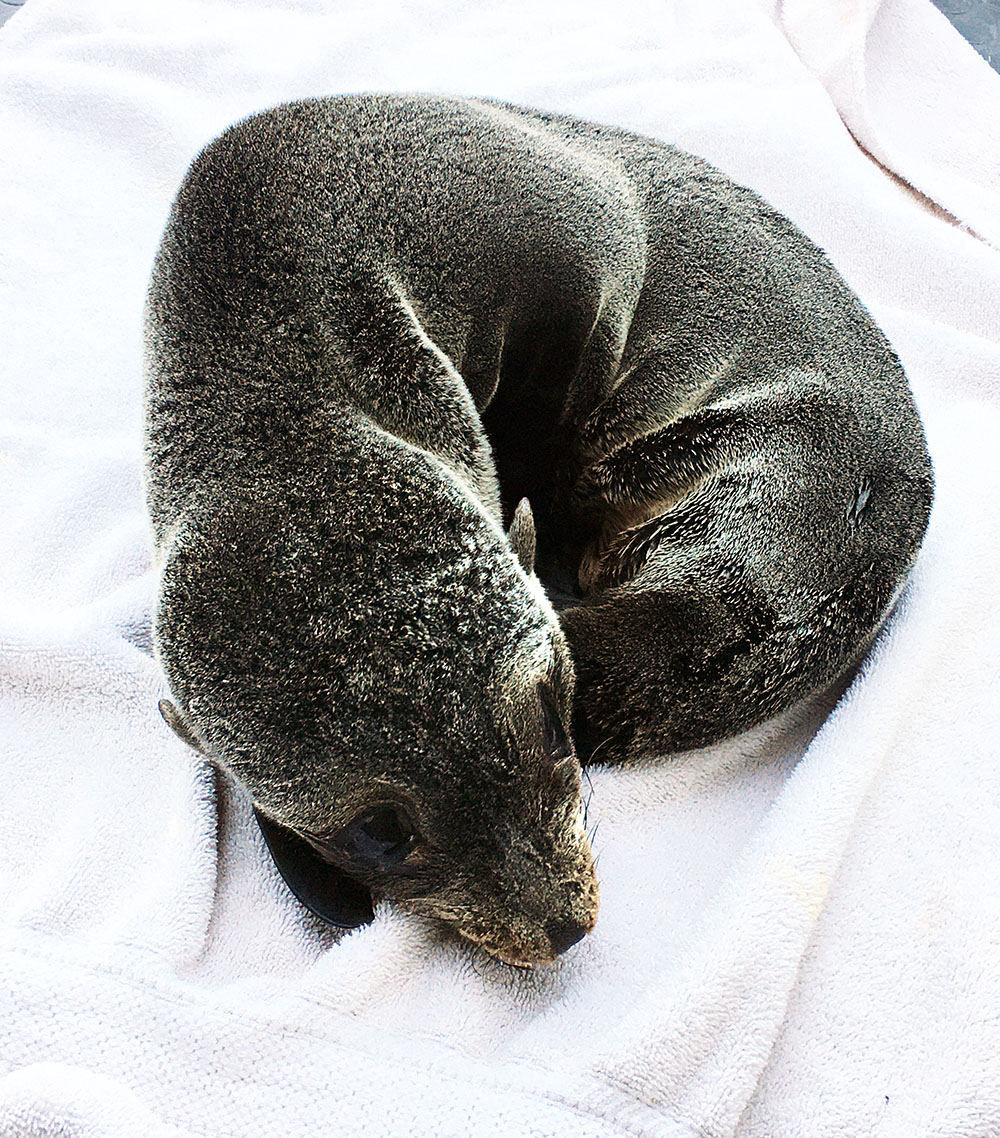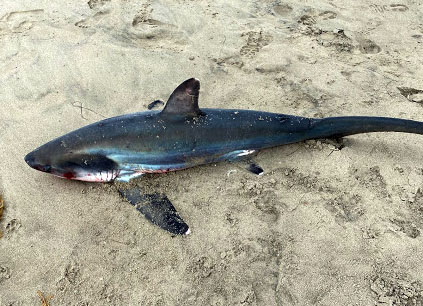Unusual Rescue Calls
By the Marine Mammal Team

Guadalupe Fur Seal pup
By Heather Henderson
Our marine mammal team performs the majority of our rescues between February and May each year. Generally, winter and summer reports are for California Sea Lions in distress, and spring is heavily weighted with Elephant Seals in need of our help. Along with these, we had a few noteworthy responses this season.
In February a seven-month-old Guadalupe Fur Seal stranded on Leo Carrillo beach, lethargic and severely malnourished. Guadalupe Fur Seals are listed as a threatened species under the Endangered Species Act (ESA). In the 1970s the Marine Mammal Protection Act was put into legislation and while it aided California Sea Lions and Northern Elephant Seals, Guadalupe Fur Seal populations remain low. Further complicating their recovery, since 2015, these Seals have been experiencing an Unusual Mortality Event, high die-off numbers without a clear cause. Each year we may only receive one call for Guadalupe Fur Seals, whereas a typical year will bring 297 of calls for other marine mammals. For ESA species like these, special permitting is required to perform long-term rehabilitative care; thus we stabilized the patient then transferred her to the appropriate facility for the remainder of her treatment.
Two Elephant Seals stranded in Malibu this July. The timing of this event is unusual because in our region elephant seals strand in high numbers during March and April, with a few stragglers in May and June. CWC has never responded to a malnourished elephant seal pup in the month of July, let alone two, until this year. We were able to stabilize both and offer them a chance to thrive. It is unclear why they beached this late. It is possible a late birth set them back.

Thresher Shark
By Kari Childers
The most unique response this year was for a recently expired Thresher Shark on Carbon Beach in August. This is a relatively rare sighting, as they tend to be a pelagic, or off-shore species. Seeing one up close is a memorable experience. While not a marine mammal, our team responded to the report of the beached shark. After confirming it was dead, we reached out to the California State University Long Beach Shark Lab. The shark biologists mentioned that there had been a handful of Thresher shark strandings along the California coastline during the same week, and they were collecting the animals to examine and hopefully determine the reason for this unusual activity.
We continue to be available throughout the year to help animals like these as well as our usual response for marine mammals and water birds at the beaches of Malibu.
